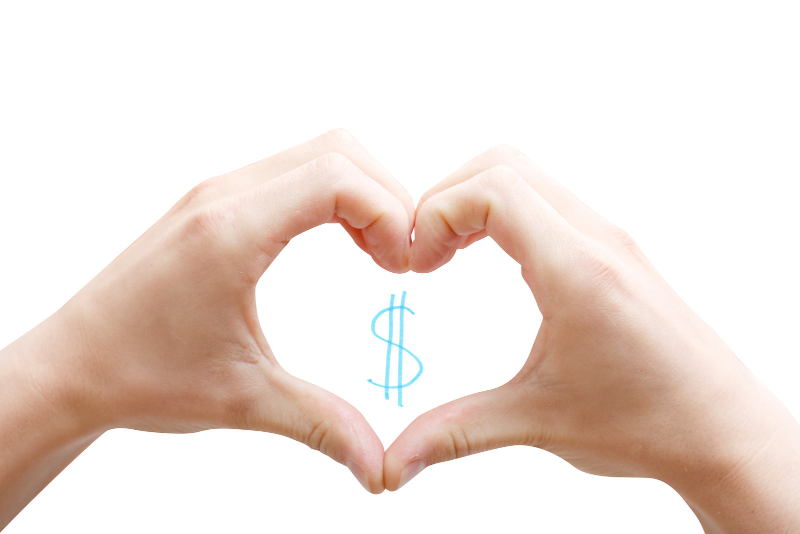Yep, here we are in March, and that means that it’s GO TIME for taxes. If it takes you a couple weeks to pull things together, and get organized … well, now is a very good time to start the process.
We’re here for you with any questions: (714) 541-4338
But don’t panic — even if you’re terrible at paperwork, we aren’t. It is, after all, what we are wading through every day on behalf of our Southern California clients … and not just to “get it done” — but to help save you as much as is legally and ethically possible under the tax code.
We have a few tricks up our sleeves, and we love to put them into action on behalf of our friends.
And speaking of panic, the world, and the markets, are in a massive uproar over the Coronavirus. There is clearly terrible devastation in China and lots of conflicting information flying around.
Which is why this video that I came across might be interesting to you. It features two eminent pathologists/epidemiologists discussing some of the disinformation flying around. It’s been making the rounds (and for good reason): [warning, link does take you to Facebook: https://www.facebook.com/BusinessInsiderScience/videos/475241419817580/ ]
I make no comment about the video, only that I found it helpful. You might also. Check it out, and come back to me … because I have things to tell you.
Tax time gives all of us a good reason to take a step back from our finances and assess how we’re actually doing.
And yes, it’s not always pretty.
I think that we all could use the reminder that our human flaws show up very clearly in our family’s finances and the financial habits we practice. The fact is that we ALL lie to ourselves, from time to time, about what’s really happening in our wallets.
Really, this comes down to a matter of the heart.
David’s Top 5 Healthy Financial Habits
“Don’t give up because things are hard, but work harder, when you think of giving up.” – Anthony Liccione
Tax time can remind us of our choices over the course of the entire previous year. We see how easy it is to pull the trigger on more expensive choices because we convince ourselves that “we deserve it”. Rather than wanting this nice thing (whether it’s as simple and perhaps-trivial as a clothing item or a dinner at a fine restaurant) — we think we *need* this new thing.
I’ve compiled a short list of ideas on how to address these financial matters of the heart … and some simple ways to put guardrails in place. The goal here is that we would train our hearts to more clearly align with good stewardship and wisdom, when sometimes we aren’t used to practicing it.
1) Understand why you are purchasing what you are purchasing.
Sometimes the real reason we are buying something isn’t actually the reason we might think we are buying something.
Are you buying your child a new bike because they need a new bike? Or … are you feeling guilty because you don’t feel that you are devoting enough time to that child? Are you purchasing that piece of jewelry for your wife because you simply love her … or are you wanting to show her something about who YOU are?
These are hard questions, but they need to be asked. Which leads to the second idea…
2) Decide on (and actually operate from) a budget.
All the budgets in the world might align themselves into your family computer, but they are worth absolutely nothing if you don’t actually use one of them. There are loads of great apps and utilities to choose from (like YNAB or PowerWallet, among others), and they can make it much simpler to determine whether or not you actually should buy something.
Sure, it may be that Macy’s is running a killer sale … but if you go past your budget, you could be doing damage to not only your wallet, but your heart.
3) Ditch the bad (expensive) financial habits and add habits that work even better.
Too often, shopping is used to ameliorate and numb our feelings of distress or pain. Recognize this within yourself when you have the space to realize it (i.e., when you are NOT facing immediate distress or pain!), and look for ways to encourage your own heart and soul to reprogram your response to pressure.
Instead of popping over to Target on a rough day, go out for a jog or take a walk. Read a book to your children, or even pop over to the local coffee shop for a spell. Sure, those $4 lattes are expensive … but they’re cheaper than a new set of golf clubs or a new dress.
The point is to create new neural pathways for our brain when under pressure.
4) Give yourself a limit for each purchase.
It’s a great idea to establish parameters with your spouse for what you can term a “slush spending amount”; i.e., an amount of money that you agree you can spend without calling each other and checking in. Obviously, this doesn’t apply to things such as gas, groceries and other necessities, but it can provide exactly the kind of trigger and accountability to retrain your heart into healthier spending habits.
5) Practice the art of gratitude.
The ancient Greeks called this practice eucharisteo — and it can be a powerful remedy for the unhealthy practice of buying more “stuff” as a way to feel better about oneself. The fact remains that you have much to be grateful for, no matter your current life circumstances. It mostly requires a willingness to see.
Dealing with our hearts when it comes to our finances is a tricky proposition. But it’s a necessary first step to a healthy family financial picture.
And remember: we are here to help!
I’m grateful for your trust, and for your referrals. We will still take on any of your friends that you’d like to send our way.
Warmly,
David Barnes
(714) 541-4338
Barnes Accountancy Corporation

